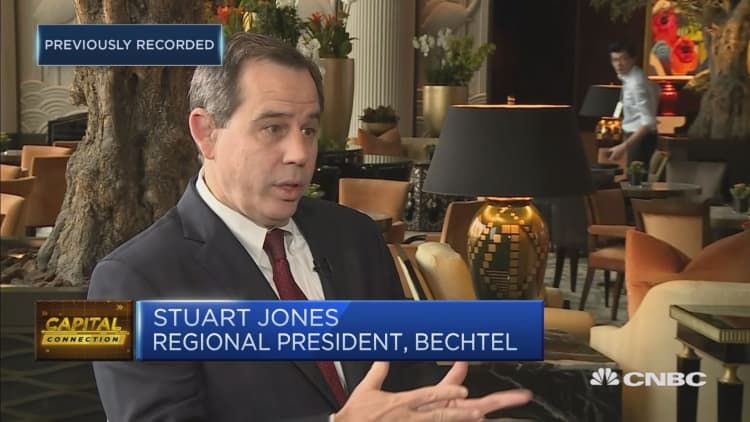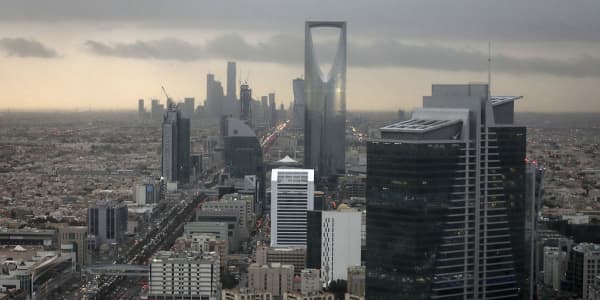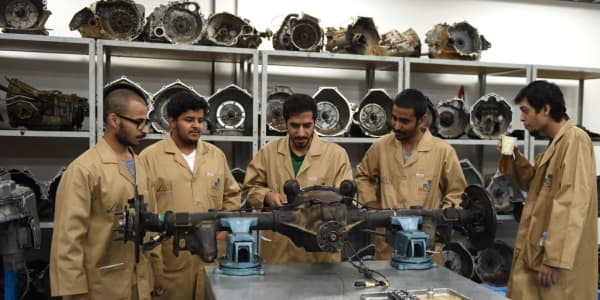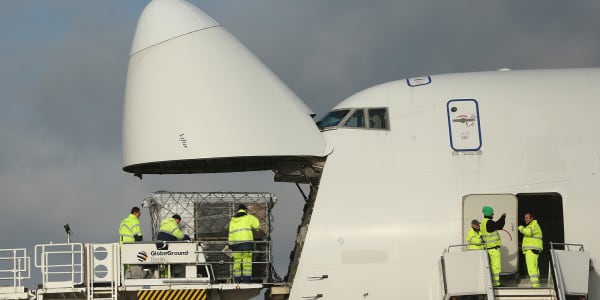
American businesses should be involved in Saudi Arabia's plans to include nuclear power into its energy mix, according to a senior executive at engineering giant Bechtel.
There is a "tremendous opportunity" for U.S. firms to get involved, Stuart Jones, regional president for Europe and Middle East at Bechtel, told CNBC's Hadley Gamble in Manama, Bahrain.
"I think the question here is if the Saudis have taken the decision to include nuclear power in their energy mix, which they seem to have done, then this is certainly something where U.S. business should be involved," Jones said on Thursday.
"I think this is something the Saudis would welcome and it's also something our government should welcome," he added.
Earlier this year, Saudi Arabia's foreign minister called on the U.S. to give it the same rights as other nuclear nations in its push to process its own nuclear fuel. The official also revealed that the kingdom is in talks with other countries should America refuse.
Saudi Arabia has said it plans to construct 16 nuclear power reactors over the next 20 to 25 years, costing more than $80 billion. It has invited U.S. firms to take part in the program but acceptance from Washington requires a country to sign a peaceful nuclear cooperation pact.
That pact is known as a 123 agreement, which separates civil and military nuclear facilities. It also aims to block the steps countries can take to move from nuclear fuel production to potential bomb-making applications.
"That negotiation is still going on (and) that also requires congressional approval," Jones said, adding he didn't know if such an approval will come. "We'll see. They're working at it and they've been very quiet about those negotiations. It's very hard to get information out of either the Saudis or the U.S. government exactly where that stands."
Riyadh has previously stated it wants to tap its own uranium resources for "self-sufficiency in producing nuclear fuel," according to Reuters.
But the Saudi pursuit of nuclear energy has made many observers nervous. In March, Saudi Crown Prince told CBS News that, if Iran were to build a nuclear bomb, so would Saudi Arabia.
On Tuesday, President Donald Trump announced he will withdraw the United States from the nuclear deal that was reached with Iran in 2015. As a result, the U.S. is set to restore far-reaching sanctions on the country.
The landmark nuclear agreement had lifted sanctions on Iran. In exchange, it accepted limits on its nuclear program and allowed international inspectors into its facilities.
— CNBC's Holly Ellyatt contributed to this report.





